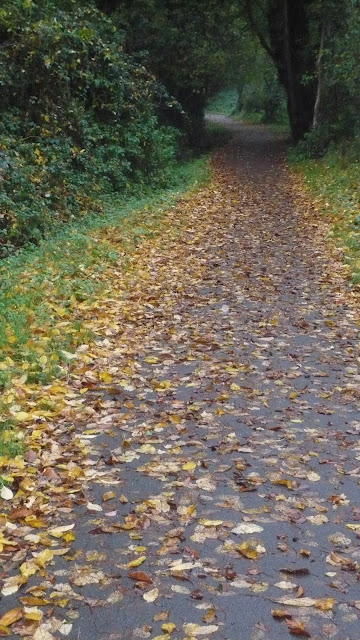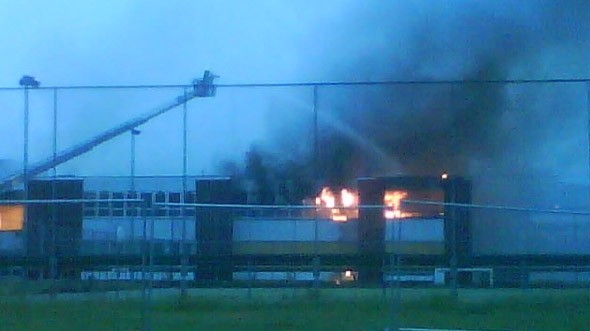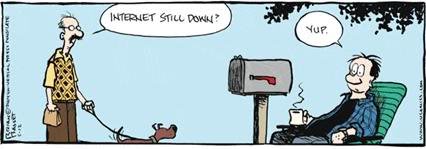This is the morning crow, I rarely see him later in the day. He and his mates gather to feed on the brats leftovers lying around, and rarely in, the abundant bins provided. These crows are powerful birds and very confident in their strength at that. Passing seagulls often land to help themselves and one crow will descend and chase the lot away. They do not like it and circle screeching but rarely attempt to take on these boys.
Not long ago I was up the road and noticed a dozen or so pigeons flocking together somewhat nervously. Thy raced this way and that, keeping a tight formation and over my head passed a large hunting bird, a Kestrel or Hawk of some kind. He ignored them and flew on at a steady pace to another area, probably because a few feet behind him, and slightly to his right, followed a crow, gently escorting him, like a Spitfire chasing a Heinkel, out off the area. A few years back, in London, the church opposite had a pecking order on the roof. The pigeons lined up along the main part of the building, wood pigeons took to the tree, and the crows, lots of them, dominated the square tower overlooking everyone. On occasions a crow would sweep down and chase everyone away, just to show who was boss, but otherwise folks just got along well. That is until a Kestrel, which belonged to a nearby church tower, decided to land on this one and have seat in the afternoon sun. Boy was he unpopular! The pigeons decided to move elsewhere and all the crows gathered to yell at the stranger. The noise was terrific but he just sat there on the corner shouting back. After a while he flew off and was escorted out by a crowd of screaming banshees and never returned. I'm not surprised!
I feel the need to do something physical. So I said to the landlord's manager, "I will paint the hall for you," as they worked on the flat next door. So Friday, late on, I done a few 'edges' and on Saturday I spent a while (2hours in the morning and three in the afternoon) painting. Yesterday I had to run into Colchester because the dole have put me on a 'work' programme. This meant getting up at the crack of dawn to get the ten o'clock train. A huge queue was grumbling there as the 'chip and pin' 'Visa' card system was not issuing tickets and they were having much trouble getting through the folk. The train was due and normally all would have been well. not today! As I eventually got to the hole in the wall I decided not to use the card as the train was about to leave and offered money (where did I get that?) and the train doors closed. He threw the tickets at me and shouted to the rest "Pay on the train!" We charged the doors and got on just! I then had almost an hour in the boring part of Colchester to wait for my appointment which took 20 minutes and got nowhere. While waiting to be paid my fares (the best bit off the day) meant a long queue behind one man who was
.

































